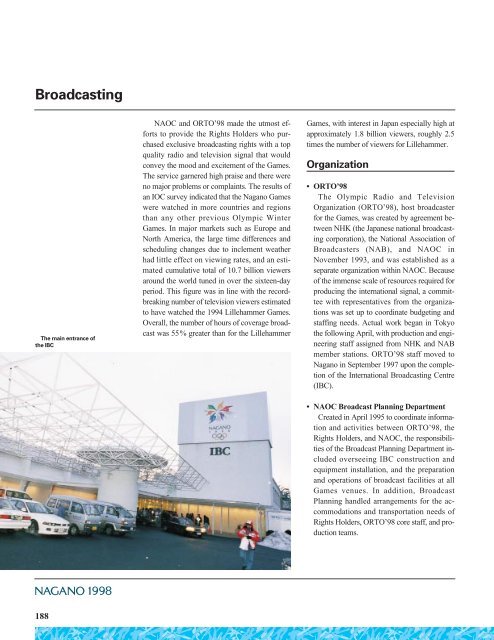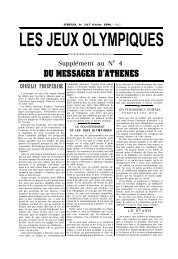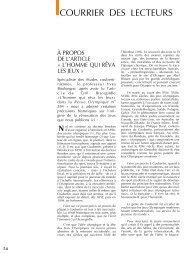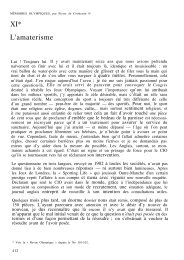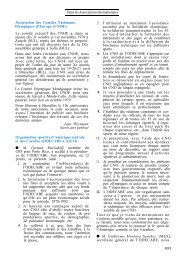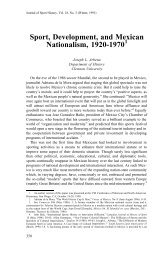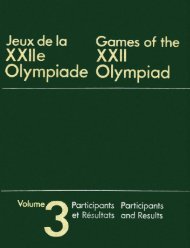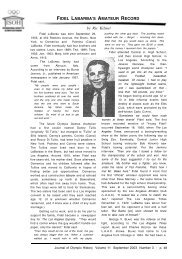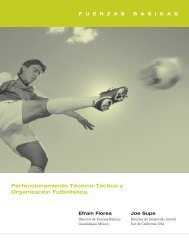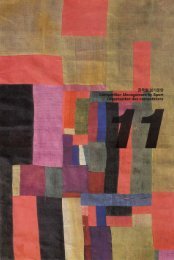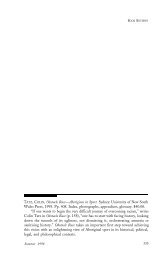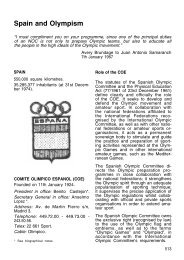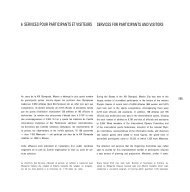107th IOC Session - LA84 Foundation
107th IOC Session - LA84 Foundation
107th IOC Session - LA84 Foundation
Create successful ePaper yourself
Turn your PDF publications into a flip-book with our unique Google optimized e-Paper software.
Broadcasting<br />
The main entrance of<br />
the IBC<br />
188<br />
NAOC and ORTO’98 made the utmost efforts<br />
to provide the Rights Holders who purchased<br />
exclusive broadcasting rights with a top<br />
quality radio and television signal that would<br />
convey the mood and excitement of the Games.<br />
The service garnered high praise and there were<br />
no major problems or complaints. The results of<br />
an <strong>IOC</strong> survey indicated that the Nagano Games<br />
were watched in more countries and regions<br />
than any other previous Olympic Winter<br />
Games. In major markets such as Europe and<br />
North America, the large time differences and<br />
scheduling changes due to inclement weather<br />
had little effect on viewing rates, and an estimated<br />
cumulative total of 10.7 billion viewers<br />
around the world tuned in over the sixteen-day<br />
period. This figure was in line with the recordbreaking<br />
number of television viewers estimated<br />
to have watched the 1994 Lillehammer Games.<br />
Overall, the number of hours of coverage broadcast<br />
was 55% greater than for the Lillehammer<br />
Games, with interest in Japan especially high at<br />
approximately 1.8 billion viewers, roughly 2.5<br />
times the number of viewers for Lillehammer.<br />
Organization<br />
• ORTO’98<br />
The Olympic Radio and Television<br />
Organization (ORTO’98), host broadcaster<br />
for the Games, was created by agreement between<br />
NHK (the Japanese national broadcasting<br />
corporation), the National Association of<br />
Broadcasters (NAB), and NAOC in<br />
November 1993, and was established as a<br />
separate organization within NAOC. Because<br />
of the immense scale of resources required for<br />
producing the international signal, a committee<br />
with representatives from the organizations<br />
was set up to coordinate budgeting and<br />
staffing needs. Actual work began in Tokyo<br />
the following April, with production and engineering<br />
staff assigned from NHK and NAB<br />
member stations. ORTO’98 staff moved to<br />
Nagano in September 1997 upon the completion<br />
of the International Broadcasting Centre<br />
(IBC).<br />
• NAOC Broadcast Planning Department<br />
Created in April 1995 to coordinate information<br />
and activities between ORTO’98, the<br />
Rights Holders, and NAOC, the responsibilities<br />
of the Broadcast Planning Department included<br />
overseeing IBC construction and<br />
equipment installation, and the preparation<br />
and operations of broadcast facilities at all<br />
Games venues. In addition, Broadcast<br />
Planning handled arrangements for the accommodations<br />
and transportation needs of<br />
Rights Holders, ORTO’98 core staff, and production<br />
teams.


